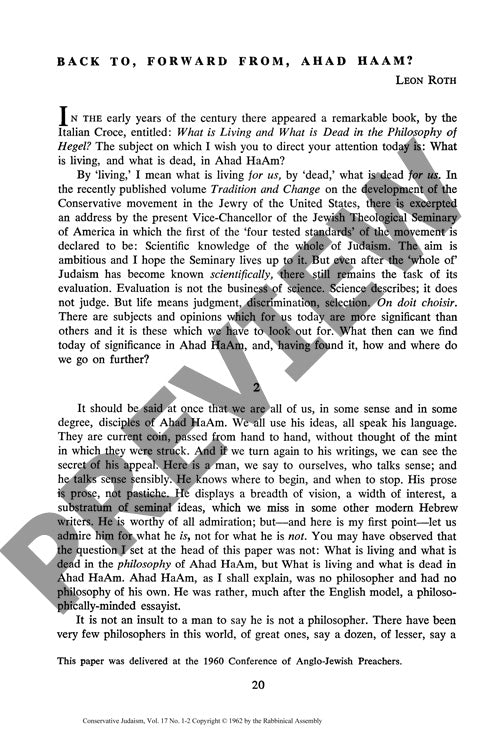Back to Forward from Ahad Haam
Couldn't load pickup availability
Ahad Ha'am's enduring influence on Jewish thought and Zionism rests more on his moral courage than his philosophical originality. Through critical textual analysis of Ha'am's essays and their relationship to classical Jewish sources, particularly Maimonides, a complex picture emerges of both his lasting relevance and fundamental limitations. The methodology systematically examines Ha'am's key concepts—including his distinction between Jewish ethics of justice versus Christian ethics of love, his interpretation of the golden rule, and his psychological approach to religious phenomena—against traditional rabbinic and philosophical sources. While Ha'am excelled as an essayist addressing his era's pressing concerns, his theoretical framework reveals significant contradictions with mainstream Jewish thought. His emphasis on absolute justice as Judaism's central virtue conflicts with Maimonides and rabbinic tradition, which prioritize the integration of mercy, compassion, and charity alongside justice. Ha'am's heavy reliance on Hegelian concepts, transmitted through Nahman Krochmal, and French psychological approaches resulted in problematic implications: religious immanentism and nationalism potentially incompatible with transcendent monotheism. While his insistence on ethical supremacy in Judaism remains valuable, contemporary Jewish discourse requires renewed philosophical inquiry into its first principles rather than continued dependence on Ha'am's now-outdated conceptual framework.

More Information
-
Physical Description
-
Publication Information
Published 1962
ISBN
-
Publication Credits
Leon Roth

